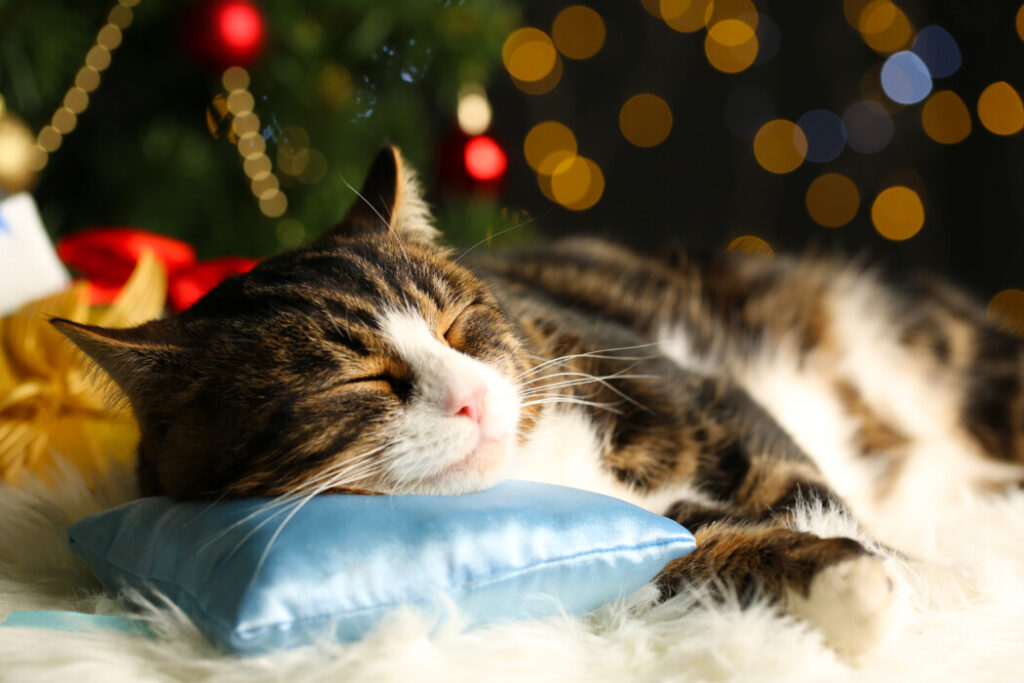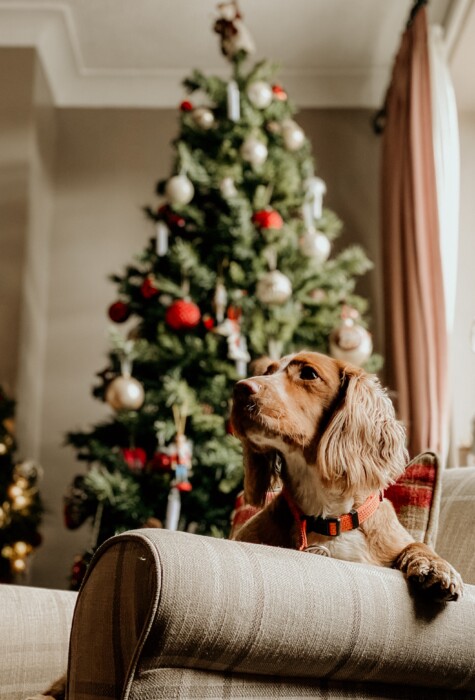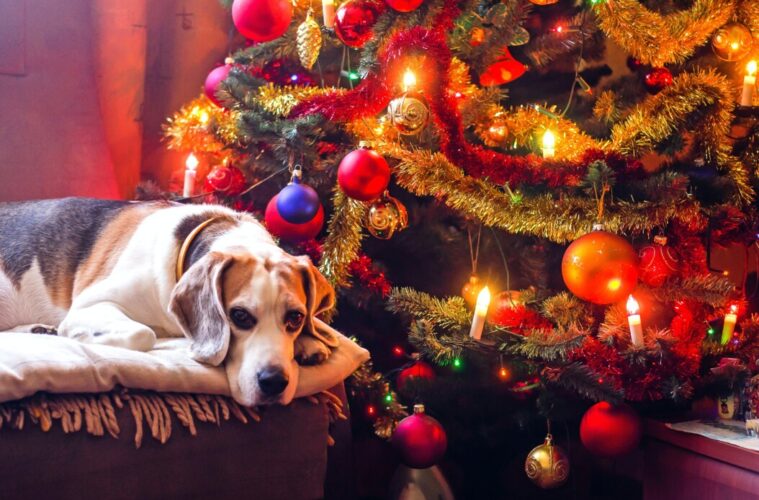The team from Bath Vets offer some expert advice for pet owners over the Christmas season
Christmas is always an exciting and busy period, and with people, food and decorations everywhere it is easy to forget the risks that this time of year poses to our furry companions.
With tempting, but potentially poisonous, treats on every surface, reports from emergency providers Vets Now show that up to a third of the UK’s estimated 12 million pet owning households experience an emergency trip to the vets over the festive season. If you’d rather avoid a trip to our 24/7 Veterinary Hospital at Rosemary Lodge this Christmas, then please beware of the following.
Food and Drink
Chocolate is probably the most well-known toxic food to dogs and cats, with its ill-effects being down to the chemical theobromine, which in high enough doses can be fatal. Over the Christmas period, make sure that all chocolate is out of the reach of your pet, including chocolate Christmas tree decorations, advent calendars, boxes of chocolate put out to share and wrapped chocolatey presents under your Christmas tree (paper wrapping is no barrier to a dog’s excellent sense of smell!).
We have even experienced a toxicity caused by a dog eating a chocolate gift delivered through the letter box by the postman whilst the owner was out, so please be aware of this possibility when sending chocolate gifts to dog owning friends and family!

The second most common food toxicities we see in practice are caused by foods containing raisins, currants and sultanas, which can cause vomiting and diarrhoea, as well as potentially kidney failure. Lots of festive treats contain these dried fruits, including Christmas cake, Christmas pudding, mince pies and stollen, and all can be fatal, even in very small doses.
Other potential food hazards include Macademia nuts, onion in foods like stuffing or gravy, blue cheese, any sweets containing Xylitol, cooked bones that can splinter and then pierce or obstruct the digestive tract, and alcohol, which is significantly more toxic to dogs than humans, causing arrhythmias, tremors, seizures and even death.
Plants
The decorative Christmas plants poinsettia, mistletoe, holly and ivy are all mildly toxic if eaten or chewed, and can cause drooling and upset stomachs.
Lilies are often part of Christmas bouquets but they are extremely toxic to cats, who are susceptible to kidney failure after consuming any part of this plant. Even licking their fur having rubbed against the plant can cause a problem.
Even the Christmas tree itself is potentially a hazard with the pine needles causing stomach upsets or trauma to the mouth and intestines if eaten or chewed!

Presents
Intestinal foreign bodies from chewing up toys is another common Christmas presentation for our out-of-hours vets, with bonus hazard potential if they contain batteries. If batteries are chewed they can leak and cause chemical burns and heavy metal poisoning. It is important to supervise present opening and keep toys out of reach, especially from curious, mouthy puppies and kittens
Decorations
Tinsel and ribbon is beautiful around the house at Christmas, but cats and dogs can find it an eye-catching toy. If eaten, these pretty decorations can cause gut blockages or perforations.
Glass baubles are prone to shatter when knocked off the tree by playful paws, and the shards can cut pads, tongues and even intestines if swallowed.
Fairy lights are another favourite, these sparkly, twinkly decorations are irresistible to pets but chewing the cables can lead to burns to the mouth and even electrocute curious cats, dogs and house rabbits.
So, to avoid a worrying and costly emergency trip to see our team this Christmas, supervise your pets around the tree, presents and decorations, carry on feeding your pet as normal and find non edible ways of involving them in the fun. Toys, walks and attention are just as rewarding as human food treats. And in the unfortunate circumstances that your pet does consume something it shouldn’t, then please contact us as a matter of urgency so potentially life-saving treatment can be given as soon as possible.
Bath Vets would like to wish you and your pets a happy, healthy, holiday season!


